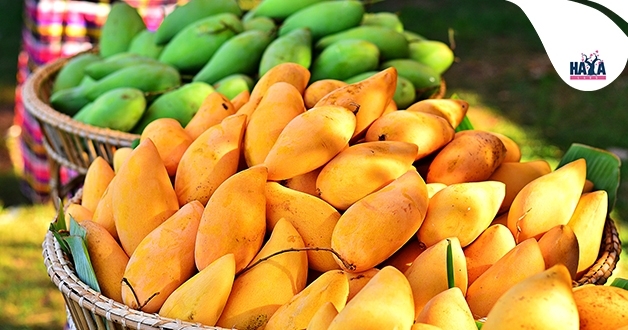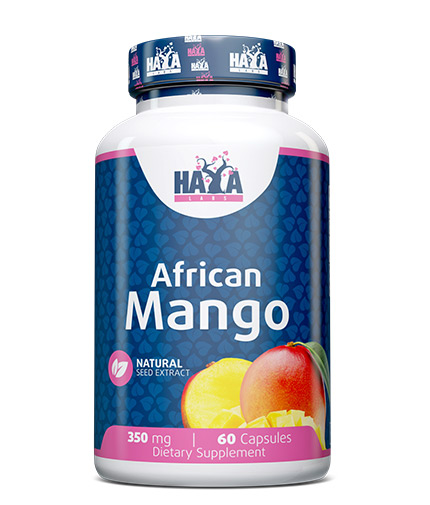
African mango (Irvingia gabonensis) is a nutritional supplement that has gained prominence with its advertised properties to help burn fat and improve the overall health profile.
Part of the existing scientific base is strongly influenced by the industry and is more related to marketing than to real-world properties. On the other hand, the African mango has real health benefits that are not negligible.
What is African Mango?
African mango (Irvingia gabonensis) is a species that grows in the forests of Africa. These are tall trees that reach 15-40 meters. The fruit of the tree is used as a food or as a source of substances for the cosmetic industry. Although the fruits of Irvingia gabonensis are called mango, because of the similarities in appearance, the African mango has nothing to do with the traditional mango.
African mango is distinguished by its seeds, which are the main source of nutrients and used as a dietary supplement. They contain large amounts of fat and water-soluble fiber. Almost all fats in the seeds are saturated and predominate medium-chain triglycerides, which resembles the coconut oil profile.
Seeds of African mango contain 10% protein, 64% fat, 15% water and 3-4% fiber. Fiber, which may be a major active component of the seed, is not yet characterized as a type. With regard to micronutrients, the seeds are not unique in nature and contain typical other foods such as vitamin C, quercetin, magnesium, iron, calcium, and some other glycosides.
Irvingia gabonensis is not known for its popularity in traditional African medicine and has so far been used mainly for cosmetic purposes, particularly as a thickening agent.
The African mango seeds show moderate antioxidant effects.
How does African Mango work?
Most studies do not find unique substances in the African mango, respectively, and there are no unique mechanisms of action. It can be considered as a nutrient-rich, healthy food.
Try out Haya Labs - African Mango NOW:
Besides fats, which are primarily medium chain triglycerides, water-soluble fiber, which resembles glucomannan, is also potentially active. Glucomannan has physiochemical properties and is taken up before eating can affect the metabolism of nutrients. With similarities in the mechanism of action, African mango can actually help to improve digestion, regulate blood glucose after taking carbohydrates and reduce calories from the food taken.
Proven and potential human benefits
African mango extract helps to reduce pain caused by high temperatures. Seeds that are popular as food supplements are not relevant in suppressing pain;
- Potential benefits of lowering triglycerides. A daily intake of 3150 mg of extract results in a 45% decrease. The only study was not done under all requirements and the triglyceride decrease in question may be associated with a decrease in body fat and the total weight of the test;
- Potential benefits in lowering total cholesterol by 26% and bad cholesterol (LDL) by 27%. Subjects use 150 mg of extract to 3 times a day for 10 weeks. The two existing studies are not complete and the decrease may be associated with a decrease in body fat and the total weight of the tested ones;
- Possible lowering of blood glucose by 22-32% with long-term intake. The decrease may be associated with changes in body composition of the tested;
- Potential benefits of appetite suppression. The independent effect of African mango was found in incomplete research. The only positive study with the positive effect observed the combined intake of African mango with chios, the two herbs exhibiting a synergistic effect;
- Potential Benefits for Fat Reduction. The effect is seen in the long-term intake before meals. The possible mechanism is associated with a decrease in the food intake, but all the studies so far have been incomplete and possibly influenced by the industry.
Recommended Doses
No effective daily dose has been established at this stage. In the studies, doses used ranged between 150 mg and 3200 mg taken during the day with meals.
Considering the main content of the herb, which is expressed in large amounts of fiber, we can assume that the effective daily dose is up to the upper limit of 3200 mg per day.
For maximum effect, we recommend taking 10-15 minutes before meals.
Where can we find an African mango?
African mango is a rather popular and relatively expensive supplement. For this reason, it is hardly used in complex formulas, regardless of their purpose.
It's easier to find African mango as a self-contained nutritional supplement, with the most commonly available standardized extract. There are also several specialized patents with a higher content of nutrients. The most regular dose is 150 mg in a capsule.
.



